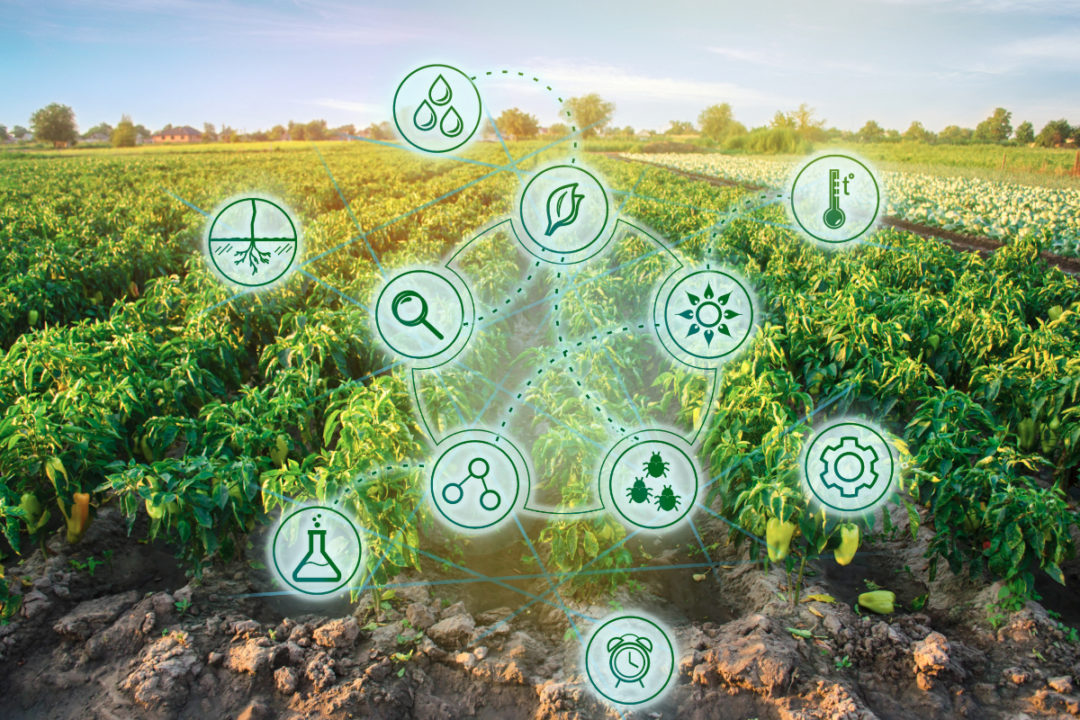Agri-Biotechnology Innovations For Sustainable Crop Improvement
Biotechnology has become an integral part of our modern world, revolutionizing various industries, including agriculture. The National Grain and Feed Association (NGFA) recently expressed concerns about a new biotech rule, stating that it is too broad and may have unintended consequences. As someone who is interested in the latest developments in biotechnology and its impact on the agricultural sector, I find this issue to be of great significance.

The NGFA, an organization representing the grain, feed, processing, and export industries, has raised important points regarding the new biotech rule. The rule, as it stands, seems to encompass a wide range of biotechnology practices without clearly defining specific aspects. This lack of clarity and specificity may lead to confusion and unintended consequences for the agricultural community.
What is important to understand is that biotechnology in agriculture has the potential to enhance the productivity and sustainability of our food systems. By utilizing genetically engineered crops, farmers can grow plants that are resistant to pests, diseases, and extreme weather conditions. This technology has been instrumental in increasing yields and reducing the need for chemical pesticides.
Ideas for mitigating the concerns raised by the NGFA include the creation of a more precise and comprehensive definition of biotechnology in the new rule. By clearly outlining what practices and technologies are included, the rule can effectively address any potential risks and liabilities associated with the use of biotech products in agriculture.
Furthermore, it is crucial for the regulatory agencies involved to seek input and feedback from all stakeholders, including farmers, processors, and consumer advocacy groups. This collaborative approach will ensure that the new rule reflects a balanced perspective and takes into consideration the needs and concerns of all parties involved.
Recommendation for the regulators would be to establish a system of clear guidelines and protocols for the approval and oversight of biotech products. This will provide a streamlined process for both the industry and regulators, facilitating the efficient and safe adoption of biotechnology in agriculture.
As we dive deeper into the discussion, it is important to acknowledge the potential benefits that biotechnology brings to the agricultural sector. Aside from pest resistance and improved yields, biotech crops can also lead to reduced soil erosion, decreased water usage, and lower greenhouse gas emissions.
Additionally, biotechnology offers incredible potential for developing crops with enhanced nutritional content. Through genetic modification, scientists can fortify crops with essential vitamins and minerals, addressing malnutrition and improving public health on a global scale.
Let's explore some key areas affected by the new biotech rule:
Listicle of Key Areas Impacted by the New Biotech Rule:
1. Crop Diversity:
The new biotech rule should consider the preservation of crop diversity. While genetically modified crops have their advantages, it is important to maintain a balance with traditional non-GMO crops. The preservation of diverse crop varieties is crucial for both our food security and ecological sustainability.
2. Organic Farming:
Organic farming is a rapidly growing sector within the agriculture industry. The new biotech rule should address the concerns and considerations specific to organic farmers. Organic certification standards need to be preserved and protected, ensuring that genetically engineered crops do not compromise the integrity of organic food production.
3. Global Trade:
The agricultural industry heavily relies on global trade to meet the demands of a growing population. The new biotech rule needs to align with international standards and regulations to facilitate seamless trade and avoid unnecessary trade barriers. Harmonizing regulations among countries will benefit both producers and consumers alike.
4. Consumer Education:
With the increasing prevalence of biotech products in our food system, consumer education is vital. The new biotech rule should consider implementing educational initiatives to help consumers make informed choices and understand the benefits and safety of biotech crops.
Now, let's address some common questions related to biotechnology in agriculture:
Question & Answer:
Q: Are biotech crops safe for human consumption?
A: Yes, extensive scientific research has consistently shown that biotech crops are safe for human consumption. Regulatory agencies thoroughly review and assess the safety of genetically engineered foods before they are allowed in the market.
Q: Do biotech crops harm the environment?
A: Biotech crops are designed to be more environmentally friendly than conventional crops. They require fewer chemical pesticides and reduce soil erosion, water usage, and greenhouse gas emissions.
Q: Are there any long-term effects of consuming biotech crops?
A: Numerous studies have been conducted to evaluate the long-term effects of consuming biotech crops, and no adverse impacts on human health have been found. Biotech crops undergo rigorous testing to ensure their safety before being approved for commercial use.
In summary, the concerns raised by the NGFA regarding the new biotech rule being too broad are significant and warrant attention. It is crucial that the rule clearly defines the scope and specifics of biotechnology in agriculture to prevent unintended consequences. Collaborative efforts from all stakeholders, including regulators, industry representatives, and consumer advocacy groups, can result in a balanced approach that maximizes the safety, productivity, and sustainability of biotech crops.
As we move forward, it is essential to recognize the potential benefits of biotechnology for agriculture, such as increased yields, pest resistance, and improved nutritional content. While addressing the concerns of crop diversity, organic farming, global trade, and consumer education, we can pave the way for a more sustainable and food-secure future.

Post a Comment for "Agri-Biotechnology Innovations For Sustainable Crop Improvement"